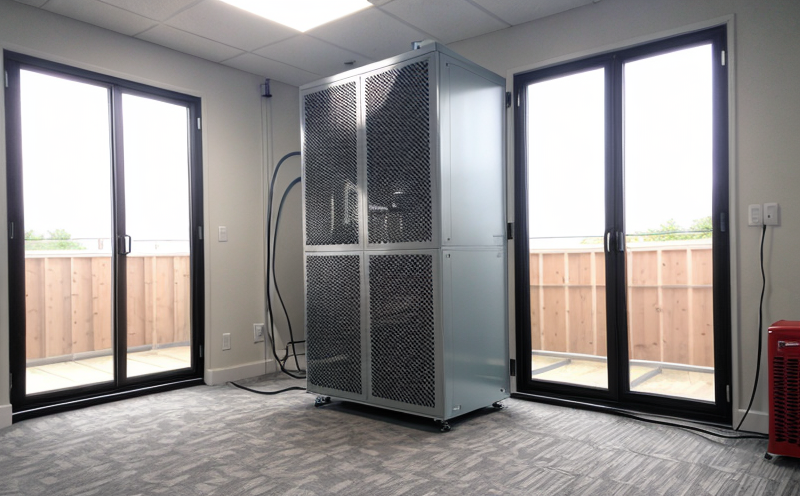Airflow & Ventilation Testing
The importance of accurate airflow and ventilation testing cannot be overstated in ensuring that HVAC (Heating, Ventilating, and Air Conditioning) equipment operates efficiently, safely, and effectively. This testing ensures compliance with international standards such as ISO 9001 for quality management systems and ASHRAE standards for building performance.
Airflow testing involves the measurement of air velocity, volume flow rate, pressure drop, and temperature distribution within a system to ensure that it meets design specifications and performs optimally. Ventilation testing focuses on ensuring that fresh air is supplied appropriately to spaces while maintaining proper exhaust ventilation rates. This process helps in meeting energy efficiency targets, improving indoor air quality (IAQ), and enhancing occupant comfort.
Our laboratory utilizes state-of-the-art equipment including differential pressure sensors, anemometers, and thermal imaging cameras to conduct these tests. The primary goal is not only to meet the required standards but also to provide clients with actionable insights that can be used for continuous improvement of their HVAC systems.
In addition to ensuring compliance, our testing helps identify potential issues early on which could lead to significant savings in operational costs and extended equipment lifespan. By maintaining optimal airflow and ventilation rates, we help prevent mold growth, reduce energy consumption, and improve overall building performance.
Our team of experts ensures that all tests are conducted according to strict protocols and adhering to industry best practices. This includes thorough preparation of specimens prior to testing, ensuring accurate readings, and providing detailed reports after each test run.
Airflow and ventilation testing is crucial in various sectors including healthcare facilities where proper air handling can prevent the spread of airborne diseases; educational institutions where student concentration levels are directly linked to IAQ; office buildings where productivity increases with better airflow management; and commercial properties where reducing energy bills through efficient HVAC systems is paramount.
For our clients, this service offers several benefits including improved system performance, reduced maintenance costs, enhanced safety measures, and increased efficiency. It also plays a key role in ensuring regulatory compliance which can protect against potential legal issues down the line.
Customer Impact and Satisfaction
- Better Indoor Air Quality: By accurately measuring airflow rates, we ensure that your HVAC equipment is delivering clean air to all areas of your facility.
- Increased Efficiency: Our tests help identify inefficiencies in your system so you can take corrective actions and save on energy costs.
- Enhanced Comfort Levels: Proper ventilation leads to more comfortable working environments, leading to higher employee satisfaction levels.
- Regulatory Compliance: Ensuring that your HVAC systems meet all relevant standards helps avoid costly penalties and fines.
We strive to exceed expectations by delivering reliable results quickly and efficiently. Our team works closely with each client throughout the testing process, ensuring they understand every aspect of our findings. This collaborative approach fosters long-term relationships built on trust and mutual respect.
Environmental and Sustainability Contributions
- Energy Savings: Efficient HVAC systems lead to reduced energy consumption, contributing positively towards lowering carbon footprints.
- Better Indoor Air Quality: Proper ventilation ensures healthier living spaces, reducing respiratory illnesses among occupants.
- Reduced Waste: Regular maintenance checks help extend the life of equipment, minimizing waste generated from premature replacement.
The use of our services supports broader sustainability goals by promoting efficient resource utilization and protecting public health. We are committed to playing our part in creating a greener future through sustainable practices.
Competitive Advantage and Market Impact
By investing in airflow and ventilation testing, businesses can gain several competitive advantages. Firstly, it demonstrates commitment to maintaining high standards of quality control which is increasingly important for gaining customer trust. Secondly, efficient HVAC systems contribute significantly to lower operational costs, making your company more profitable compared to competitors who may be operating less efficiently.
Furthermore, this service enhances brand reputation by showcasing expertise in managing complex technical challenges effectively. It also opens up opportunities for innovation and improvement within the organization, potentially leading to new products or services that can be marketed as unique selling points.





